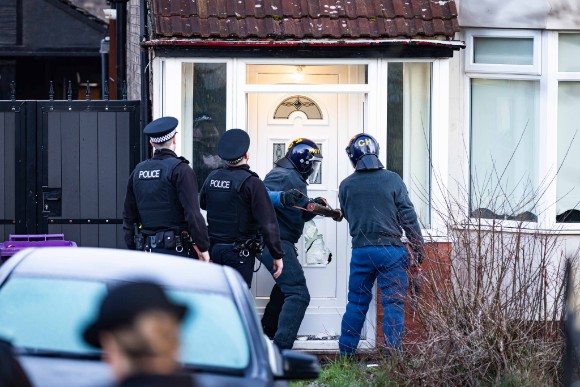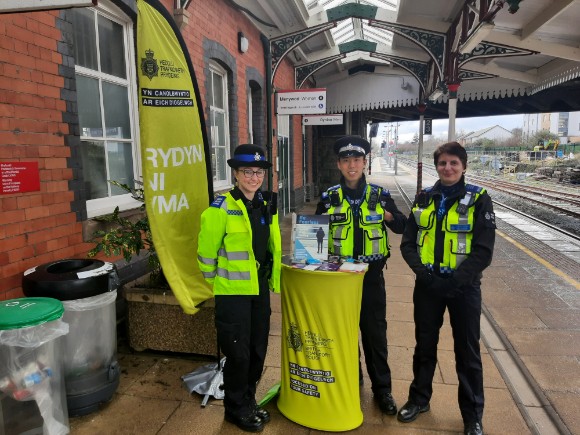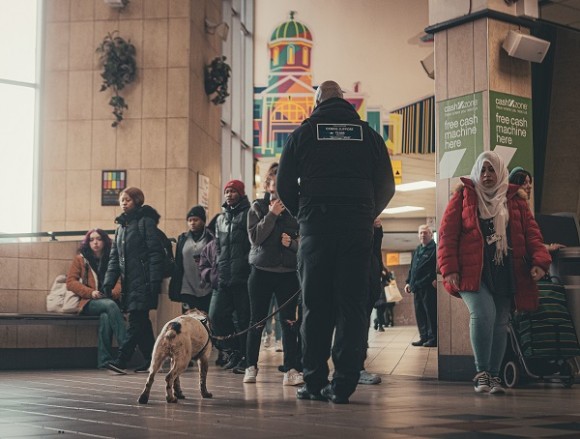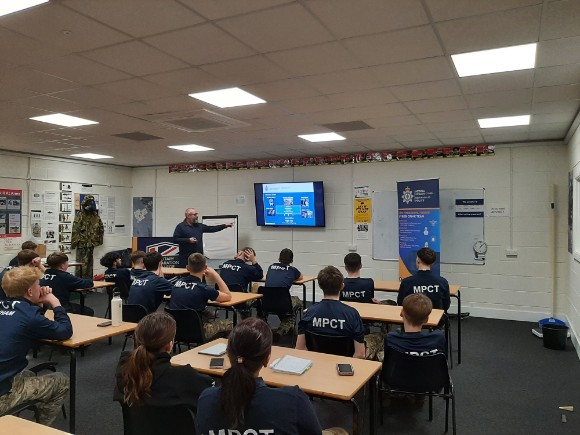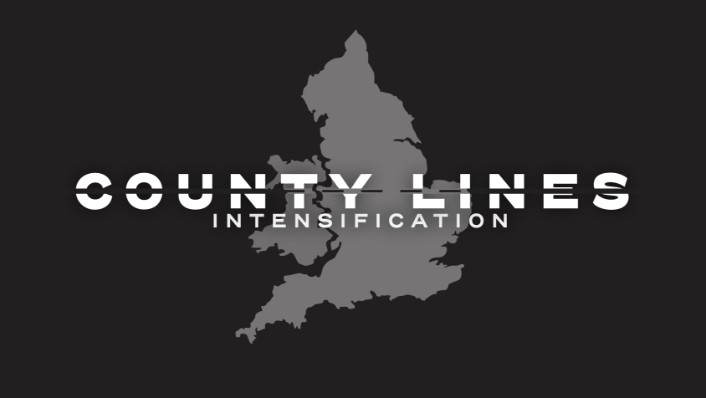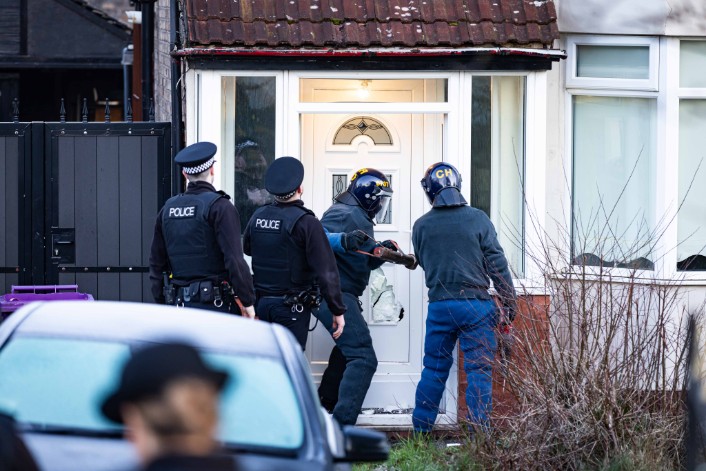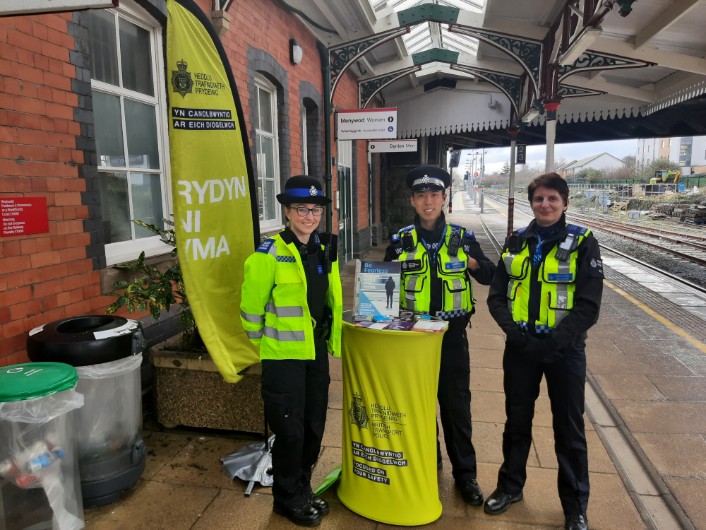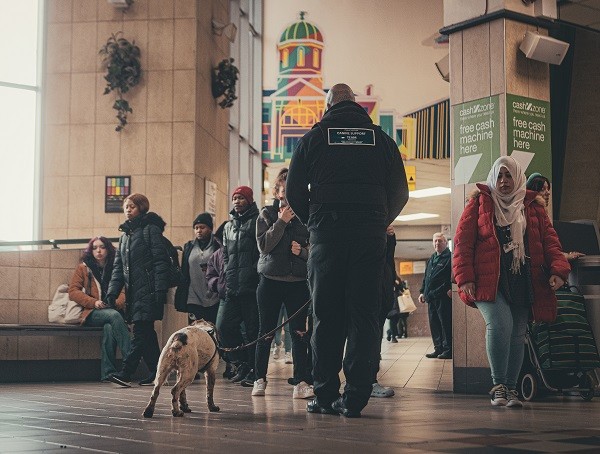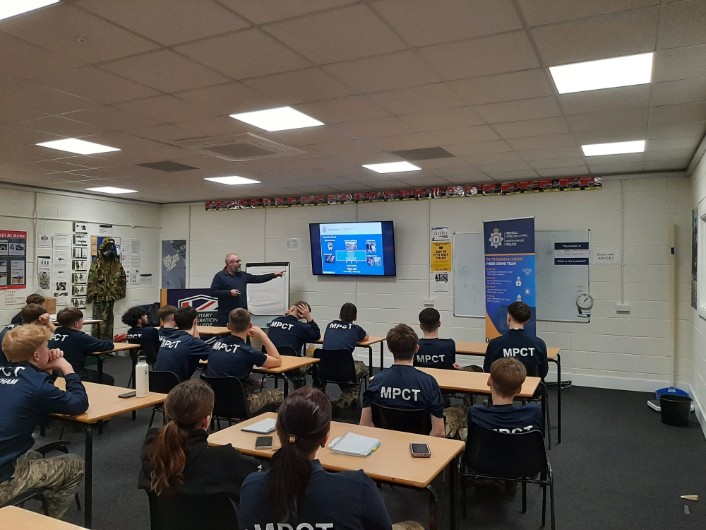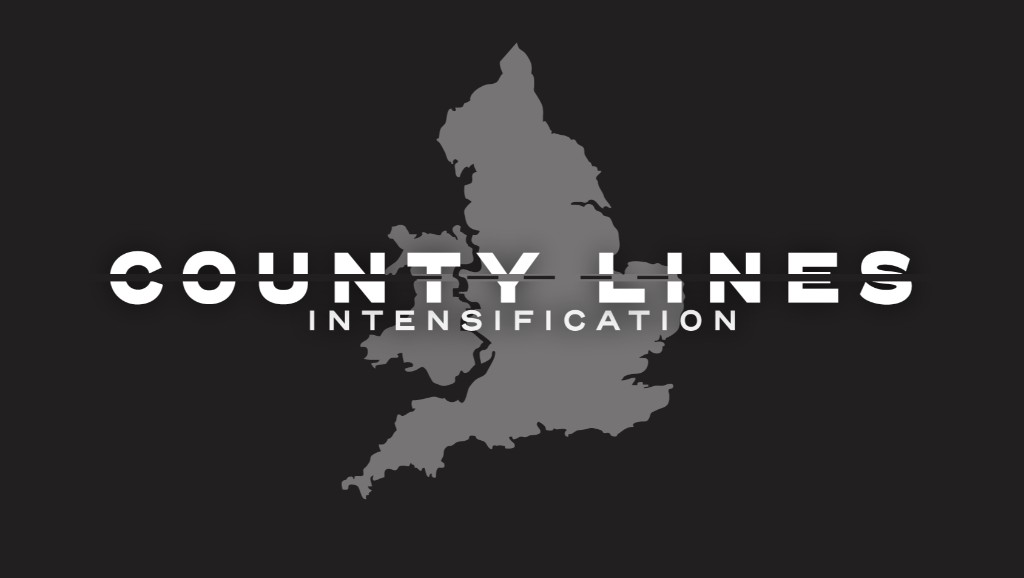
15 Mar 2024
Police dismantle hundreds of county line networks
Over 1,800 arrested with 245 drug lines shutdown during crackdown and 1,600 people safeguarded.
Police forces have arrested 1,874 criminals and closed 245 county lines used by county line gangs to sell drugs, 660 weapons and eight XL Bully dogs were seized across the country during a seven-day long intensification week.
County lines is the term used to describe drug dealing where mobile phones are used to supply drugs from large cities to towns and rural areas. County lines are run by ‘Line Holders’ and the runners, often vulnerable people, deliver the drugs. The system of drug distribution leads to serious violence and exploitation.
Police forces across the country have taken part in the national county lines intensification week cracking down on drug traffickers.
National Police Chiefs’ Council lead for County Lines, Commander Paul Brogden, said:
“County lines remains a top priority for policing and our latest intensification week figures shows further inroads policing has made into these criminal networks with 245 county lines closed during the week. We have targeted the drug dealers who destroy lives and communities with over 1,800 criminals arrested.
“County lines drug dealing is linked to the most serious violence, demonstrated through the horrific weapons seized across the week, where we saw 660 weapons seized, including 96 firearms, 466 bladed weapons, 98 other weapons including hammers, nun chucks, batons and knuckle dusters.
“We have a prevention-first approach to tackling county lines, stopping people being drawn in, whilst working to prepare communities for the impact of county lines and protect children and vulnerable adults, safeguarding them from harm, along with relentlessly pursuing offenders, and last week we safeguarded 1,653 people, of which 51% were children.”
The intensification week, which ran from Monday 4 March to Sunday 10 March, saw:
- 1874 people were arrested.
- 660 weapons seized, including 96 firearms and 466 bladed weapons.
- Over £2.5m worth of Class A & Class B drugs seized.
- 6.2kg of Crack Cocaine, 8.8kg of Heroine, 30kg of Cocaine and around 13,000 Cannabis plants seized.
- £1.8m in cash seized.
- 1,653 people safeguarded.
- 1,284 cuckooed addresses visited.
- Eight XL Bully dogs seized.
Policing Minister Chris Philp said:
“County lines gangs inflict harrowing damage and misery, using violence and intimidation to exploit children and vulnerable people to do their dirty work.“Our police forces work incredibly hard every day to break up these criminal networks and I want to pay thanks to our officers for their continued efforts to tackle this vile activity.
“Our plan to crack down on illegal drugs through a whole-system approach is working, as set out in our 10-year Drug Strategy, backed by a record £3 billion funding over three years- including a new target to smash another 1,000 county lines by August.”
Highlights
Across the week, officers up and down the country concentrated efforts to crack down on county lines.
- Northumbria Police executed five warrants which resulted in 16 arrests, £16,000 cash, E-bikes in excess of £10,000, gold bars worth £1000, one sword, one machete, three cars being seized.
- West Midlands Police rescued two children in Crewe that were missing on County Lines. Both were safeguarded, in conjunction with Birmingham Childrens Services and a fast-time investigation conducted to identify the perpetrators. This led to arrests in Crewe and Birmingham, with class A drugs seized. Two men were charged with drugs supply and modern slavery offences.
- North Wales Police working in partnership with Merseyside Police, British Transport police and other partner agencies carried out various activities throughout the week which resulted in Class A and B drugs being seized as well as weapons such as machetes, knives and air rifles. 26 offenders were arrested and approximately £10000 cash was also seized.
- Derbyshire Constabulary arrested a man for modern slavery offences and seized Cannabis, a gas powered air pistol, mobile phones and a suspected stolen quad bike.
- Thames Valley Police conducted a warrant in Oxford where drugs valued at £250,000, £15,000 in cash, designer items including a Rolex watch and an Audi SQ5 were seized.
- Merseyside Police ran an educational programme, supporting local schools with young people who may be at risk of being groomed into crime and missing school as a result. A boxing programme three days per week after school hours to divert young people and encourage them to exercise and improve mental health was also provided.
- Derbyshire FA supported the Children’s Society #LookCloser campaign during the County Lines Intensification Week engaging with over 50,000 people.
- A Crimestoppers campaign, including a bespoke ‘Fearless’ campaign for young people, has been running all week across the country, warning of the dangers of County Lines and offering the helpline number to anonymously provide information. As part of this campaign a number of key areas were targeted with geo-located promotion of key campaign messages.
- North Wales Police Neighbourhood policing teams and school liaison officers also undertook activities to engage with and educate vulnerable members of the public and over 2000 young people across the area.
County lines drug dealing is linked to the most serious violence, demonstrated through the weapons seized across the week, including knuckle dusters, machetes, and knives.
Safeguarding victims
Young children and vulnerable adults are often groomed to run drugs from one city to other parts of the country. Grooming is often followed by extreme violence and coercive behaviour.
Across the last week, 1,653 were actively safeguarded, with police forces working with relevant services and charities to help safeguard children and vulnerable adults, using a variety of options available to them, including specialist support referrals, strategy meetings, safety plans created and Modern Slavery Crime reports.
Police can also bring victimless prosecutions for modern slavery offences, just one of the many ways officers are protecting young people. Victimless prosecutions ensure children and vulnerable adults are spared the ordeal of having to go through the court process to give evidence and face the violent and abusive individual responsible for their suffering.
Missing people delivered national webinars to 1,180 professionals to raise awareness of the Safecall service, a confidential and anonymous helpline and support service for young people and family members in England and Wales that are affected by county lines and criminal exploitation. The service also provides confidential support and advice for professionals in relation to their work with an exploited young person or family. Call or text 116000 for free, 9am to 11pm, 7 days a week.
James Simmonds-Read, National Programme Manager at The Children’s Society, said:
“In a concerning trend, criminals are increasingly targeting and manipulating children into taking part in financial activity which is often criminal and dangerous, while benefiting the people making it happen. Sadly, financial exploitation is often connected to other forms of abuse. What may start with sharing bank details and the promise of easy cash can then turn into threats of sexual abuse or children being made to hold or move drugs for criminal groups. It’s a serious problem which needs attention to protect children from being exploited.
“Financial exploitation can happen to any child, in any village, town or city regardless of their background. While criminals don’t care about the children they target online through gaming and social media platforms, or places like shops and cashpoints, we know the public do care about keeping children safe.
“For this #LookCloserweek, we want to raise awareness about the child victims of financial exploitation and how to spot the signs a child or young person is being financially exploited.
“If you see or suspect a young person is being exploited, please call the police on 101 or 999 if there is an immediate risk. If you’re on a train, text the British Transport Police on 61016. Alternatively, you can contact the NSPCC for advice on 0808 800 5000.”
Victims of County Lines exploitation also received support from Catch22, a not-for-profit, one-to-one specialist support service for young people under 25, helping children escape drug gangs in four priority locations – London, West Midlands, Merseyside and Greater Manchester, where young people are often targeted.
Catch22 will safely make contact with young people who have been referred by safeguarding partners, such as the police and children’s services, and work with them to exit their involvement in County Lines activity.
Johnny Bolderson, Senior Service Manager, National County Lines Support and Rescue Service, said:
“County lines organised crime groups who exploit children and young people have a devastating impact on our communities. Children and young people affected by county lines are often manipulated and coerced into committing crimes or sexual acts. Specific to exploitation via county lines is the requirement to travel out of area to support the selling of drugs – this removes the support network around the victim and makes them more vulnerable to exploitation.
“The Catch22 County Lines Support and Rescue service is funded by the Home Office until April 2025 and works with children and young people and their families across London, the West Midlands, Greater Manchester and Merseyside where the majority of county lines run from. In our specialist service, our Caseworkers provide one-to-one support to children and young people up to 25-years-old, and their families. We deliver an out-of-hours rescue service to children and young adults who have been found in an exploitative situation and need a safe return home.
“Once in our service, our Caseworkers provide a confidential and bespoke service for each individual. We tailor our interventions to meet the needs of the individual and make referrals to the wider services that they may need, including mental health, substance misuse, sexual health and other support. We’re here to help them understand what county lines is, why it can be difficult to recognise and what the impact can be. We work with partners to safeguard young people and support them to find positive ways forward in line with their hopes and aspirations. The service is delivered in partnership with Kooth, Abianda, The REIGN Collective, Crest Advisory and SafeCall.”
Anyone can refer in, including young people themselves. You can find the Support and Rescue service referral forms on the service website for more information. For more information and useful resources about Child Exploitation and county lines, you can visit our website. For example, you can download Catch On, our free educational resource about Child Exploitation aimed at pupils in Years 7 and 8 (aged 11-13).
People should report any concerns to the police on 101. If on a train text British Transport Police on 61016. Dial 999 if there is an immediate risk to a child. Alternatively contact Crimestoppers anonymously online or call their helpline on 0800 555111. If concerns arise online people should also contact the relevant digital platform.
Contact information
Communications office
By phone: 0800 538 5058
By email: press.office@npcc.police.uk

